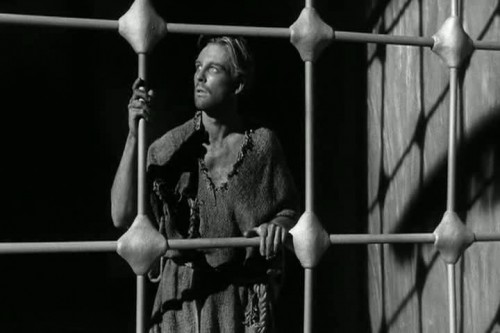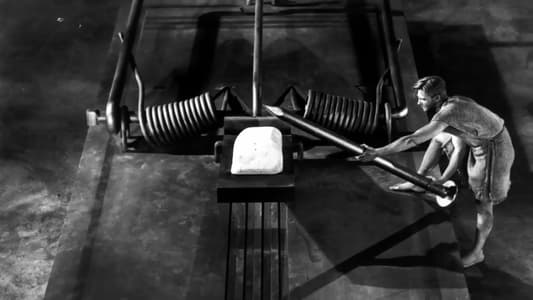Director Jack Arnold is one of the unsung heroes of 1950’s Science Fiction cinema having made some of the classics such as Them!, Tarantula and Creature From the Black Lagoon. In 1957 he directed an adaptation of the story by author Richard Matherson, The Incredible Shrinking Man and made one of the most memorable fantasy films of the period.
Whilst on a holiday cruise with his wife, young Scott finds himself enveloped by a luminous mist which covers him in a strange, glittery dust. Several months later, he s accidentally sprayed with an insecticide. Soon, Scott starts shrinking at an alarming rate, and before long he s thrust into a terrifying world of gigantic cats, spiders and other over-sized pitfalls!

The film quickly grips you into its story and you find yourself fascinated by watching a man slowly get smaller and smaller and realise his agony when he can do nothing about it. While the film does have some spectacular set pieces with a huge spider and a pet cat it also looks into the bigotry and isolation being small meant at that time.
We see him adapt and become resourceful when his wife and brother thinks he is dead and he finds himself alone in the cellar. Without spoiling anything the ending is also not typical of films of this period when he says “To God, there is no zero” in one of the most profound endings of any film at the time. Not surprisingly Universal Studios wanted a happy ending where he is restored to normal size, but the director got his way.

The disc by Arrow is a remastered print and looks fantastic. The HD image enhances the special effects which have aged remarkably well. Audio is again remastered and clear original mono and sounds fine. Some good extras including an informative audio commentary by Tim Lucas and gives us many great facts including the film was not even nominated for an Academy Award for special effects that year (it was won by Forbidden Planet) which just shows how bias these awards are against fantasy and horror movies.
Also included are a great documentary on Jack Arnold and a conversation with Richard Matheson’s son about the creation of the original novel. Finally, a cut-down 8mm version and an enjoyable essay by author and critic Kim Newman.
FILM: 8.5 PICTURE: 8 AUDIO: 7 EXTRAS: 8